There is no way of knowing when a sick or injured chicken is going to need immediate, medical attention, so it is best to be prepared for the worst. During an urgent, medical situation, acquiring supplies should not be the priority. Knowing the types of emergency supplies to have on hand is as important as having a safe, quiet space in which they can recover.
I use my infirmary space for multiple purposes, including: a maternity ward for brooding hens, a time-out space for aggressive or problem chickens, a broody-breaker box and as a grow-out space for chickens being integrated into the flock. I'll show you some of my Sick Bay set ups shortly, but first, let's look at chicken first aid essentials.
Vetericyn Poultry Wound Spray
FIRST-AID KIT ESSENTIALS
- Vetericyn Plus Poultry Care Spray
- Vetrap
- vitamins & electrolytes
- an eye dropper or syringe
- Epsom salt-for soaking feet before bumblefoot treatment
- non-stick gauze pads
- disposable gloves
- aspirin (not baby aspirin)
- tweezers
- scissors
- Neosporin ointment
- Superglue gel (for broken beak repair
- an LED Headlamp
- styptic powder (for bleeding nails/beaks)
- dog nail clippers or a Dremel tool (for trimming beaks or toe nails)
- Chlorhexadine 2% solution (antibacterial, antifungal cleaning & sanitizing solution. Great for cleaning & sanitizing bumblefoot & other skin infections as well as cleaning/ sanitizing equipment, work areas & cages).
- The contact information for an avian veterinarian and your state's poultry pathology lab & extension service agents can be found HERE
Some other items you may wish to keep in a more extensive first aidl kit for your chickens are:
- liquid calcium (for vent prolapse)
- Popsicle sticks (for fashioning splints)
- a chicken saddle (for hens with feather loss from over-mating)
- Lafeber's Hand-feeding Formula-for sick chickens who are not eating independently.
- ProZyme– digestive & nutritional support for ill chickens not eating normally
- tea bags (for beak repair)
- Old towels (for calming a chicken during bumblefoot surgery, for instance, or bedding for very sick birds in the house)
- Dog Training Pads-floor padding for sick birds
*If you should find yourself without electrolytes in an emergency situation such as <heat stress or dehydration, Gatorade can be substituted or simply make your own electrolytes with items commonly found in the kitchen. Click here for the electrolyte recipe.
Learn about treating a broken beak here.
This baby chick was pecked by a broody hen, causing the wound shown. I sprayed Vetericyn on it 2-3 times per day and within 13 days the chick was completely healed with new feathers emerging through the site of the wound!
SICK BAY FOR CHICKENS
It is best to know how and where a sick-bay will be set up before it becomes necessary.
The basic requirements of a sick-bay are that it provide enough spacious for the chicken to move around in, is accessible for cleaning, and has a space for food and water apart from where it can relieve itself. It helps if it's in a dimly lit, quiet place that is a little warmer that the chicken was accustomed to outside. There are countless options for a sick-bay. I prefer wire-sided pet crates or a rabbit hutch setup.
When baby chicks requiring supplemental heat are injured, they should be physically separated inside the brooder from the other chicks. This is the setup I have used successfully with bullied and bullying chicks. Dividing the brooder with hardware cloth or window screening allows the chicks to share a heat source and remain visible to one another, which makes reuniting them later easier.
A rabbit hutch makes a fantastic hospital ward for chickens.
CARE OF A SICK CHICKEN
Information about caring for a sick chicken can be found HERE.
CARE OF INJURED BIRDS
Any time a bird is sick or injured, the bird must be housed separately from the flock until the injury is completely healed to avoid further injury, potential spread of a contagious illness, cannibalism and death. The recovery area should be a safe, quiet living space where they will remain until they are fully recovered. Much more about caring for injured birds HERE.
RETURNING INJURED BIRDS TO THE FLOCK
1) The injured bird should be 100% healed with no visible signs of blood or scabbing before being returned to the flock. (Covering it up with a purple dye product is not an acceptable substitute for time and complete healing.)
AND
2) Treat the injured bird like a stranger when reintroducing it to the flock. I recommend the Playpen Method for a conflict-free reunion. Again, patience is the key to success. Learn about the Playpen Method HERE.
Kathy Shea Mormino
Affectionately known internationally as The Chicken Chick®, Kathy Shea Mormino shares a fun-loving, informative style to raising backyard chickens. …Read on


shop my SPONSORS
There is no way of knowing when a sick or injured chicken is going to need immediate, medical attention, so it is best to be prepared for the worst. During an urgent, medical situation, acquiring supplies should not be the priority. Knowing the types of emergency supplies to have on hand is as important as having a safe, quiet space in which they can recover.
I use my infirmary space for multiple purposes, including: a maternity ward for brooding hens, a time-out space for aggressive or problem chickens, a broody-breaker box and as a grow-out space for chickens being integrated into the flock. I'll show you some of my Sick Bay set ups shortly, but first, let's look at chicken first aid essentials.
Vetericyn Poultry Wound Spray
FIRST-AID KIT ESSENTIALS
- Vetericyn Plus Poultry Care Spray
- Vetrap
- vitamins & electrolytes
- an eye dropper or syringe
- Epsom salt-for soaking feet before bumblefoot treatment
- non-stick gauze pads
- disposable gloves
- aspirin (not baby aspirin)
- tweezers
- scissors
- Neosporin ointment
- Superglue gel (for broken beak repair
- an LED Headlamp
- styptic powder (for bleeding nails/beaks)
- dog nail clippers or a Dremel tool (for trimming beaks or toe nails)
- Chlorhexadine 2% solution (antibacterial, antifungal cleaning & sanitizing solution. Great for cleaning & sanitizing bumblefoot & other skin infections as well as cleaning/ sanitizing equipment, work areas & cages).
- The contact information for an avian veterinarian and your state's poultry pathology lab & extension service agents can be found HERE
Some other items you may wish to keep in a more extensive first aidl kit for your chickens are:
- liquid calcium (for vent prolapse)
- Popsicle sticks (for fashioning splints)
- a chicken saddle (for hens with feather loss from over-mating)
- Lafeber's Hand-feeding Formula-for sick chickens who are not eating independently.
- ProZyme– digestive & nutritional support for ill chickens not eating normally
- tea bags (for beak repair)
- Old towels (for calming a chicken during bumblefoot surgery, for instance, or bedding for very sick birds in the house)
- Dog Training Pads-floor padding for sick birds
*If you should find yourself without electrolytes in an emergency situation such as <heat stress or dehydration, Gatorade can be substituted or simply make your own electrolytes with items commonly found in the kitchen. Click here for the electrolyte recipe.
Learn about treating a broken beak here.
This baby chick was pecked by a broody hen, causing the wound shown. I sprayed Vetericyn on it 2-3 times per day and within 13 days the chick was completely healed with new feathers emerging through the site of the wound!
SICK BAY FOR CHICKENS
It is best to know how and where a sick-bay will be set up before it becomes necessary.
The basic requirements of a sick-bay are that it provide enough spacious for the chicken to move around in, is accessible for cleaning, and has a space for food and water apart from where it can relieve itself. It helps if it's in a dimly lit, quiet place that is a little warmer that the chicken was accustomed to outside. There are countless options for a sick-bay. I prefer wire-sided pet crates or a rabbit hutch setup.
When baby chicks requiring supplemental heat are injured, they should be physically separated inside the brooder from the other chicks. This is the setup I have used successfully with bullied and bullying chicks. Dividing the brooder with hardware cloth or window screening allows the chicks to share a heat source and remain visible to one another, which makes reuniting them later easier.
A rabbit hutch makes a fantastic hospital ward for chickens.
CARE OF A SICK CHICKEN
Information about caring for a sick chicken can be found HERE.
CARE OF INJURED BIRDS
Any time a bird is sick or injured, the bird must be housed separately from the flock until the injury is completely healed to avoid further injury, potential spread of a contagious illness, cannibalism and death. The recovery area should be a safe, quiet living space where they will remain until they are fully recovered. Much more about caring for injured birds HERE.
RETURNING INJURED BIRDS TO THE FLOCK
1) The injured bird should be 100% healed with no visible signs of blood or scabbing before being returned to the flock. (Covering it up with a purple dye product is not an acceptable substitute for time and complete healing.)
AND
2) Treat the injured bird like a stranger when reintroducing it to the flock. I recommend the Playpen Method for a conflict-free reunion. Again, patience is the key to success. Learn about the Playpen Method HERE.



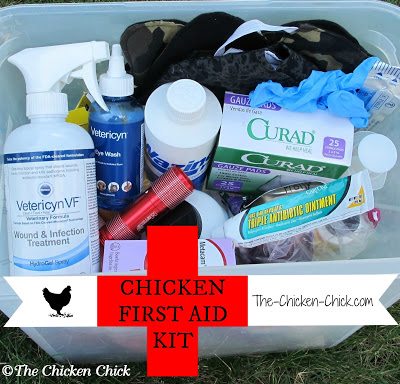
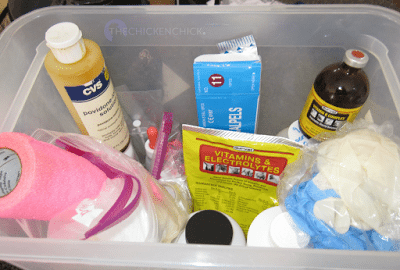

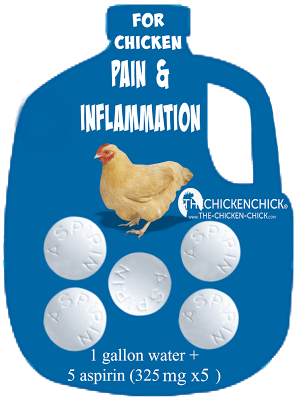
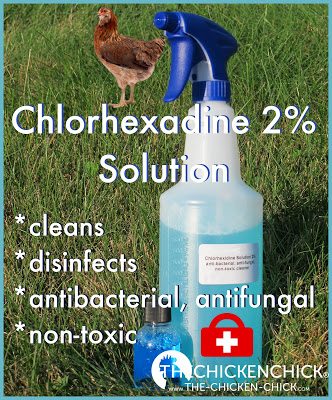



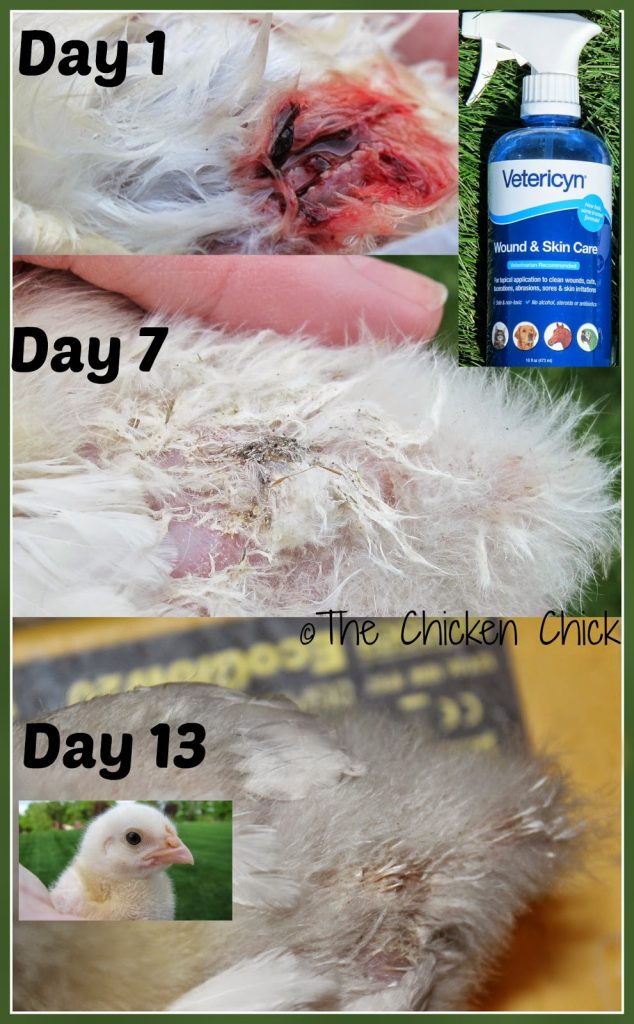
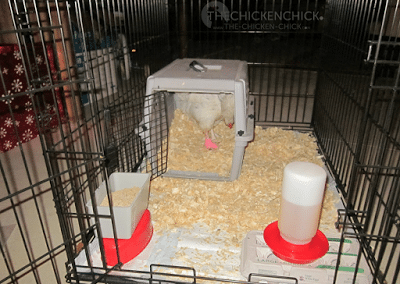
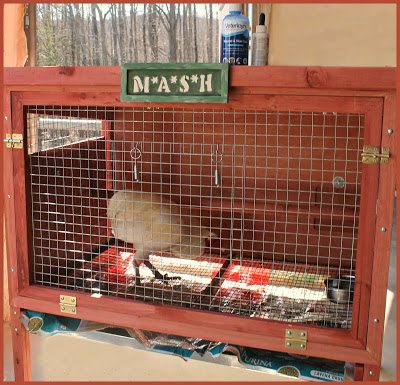
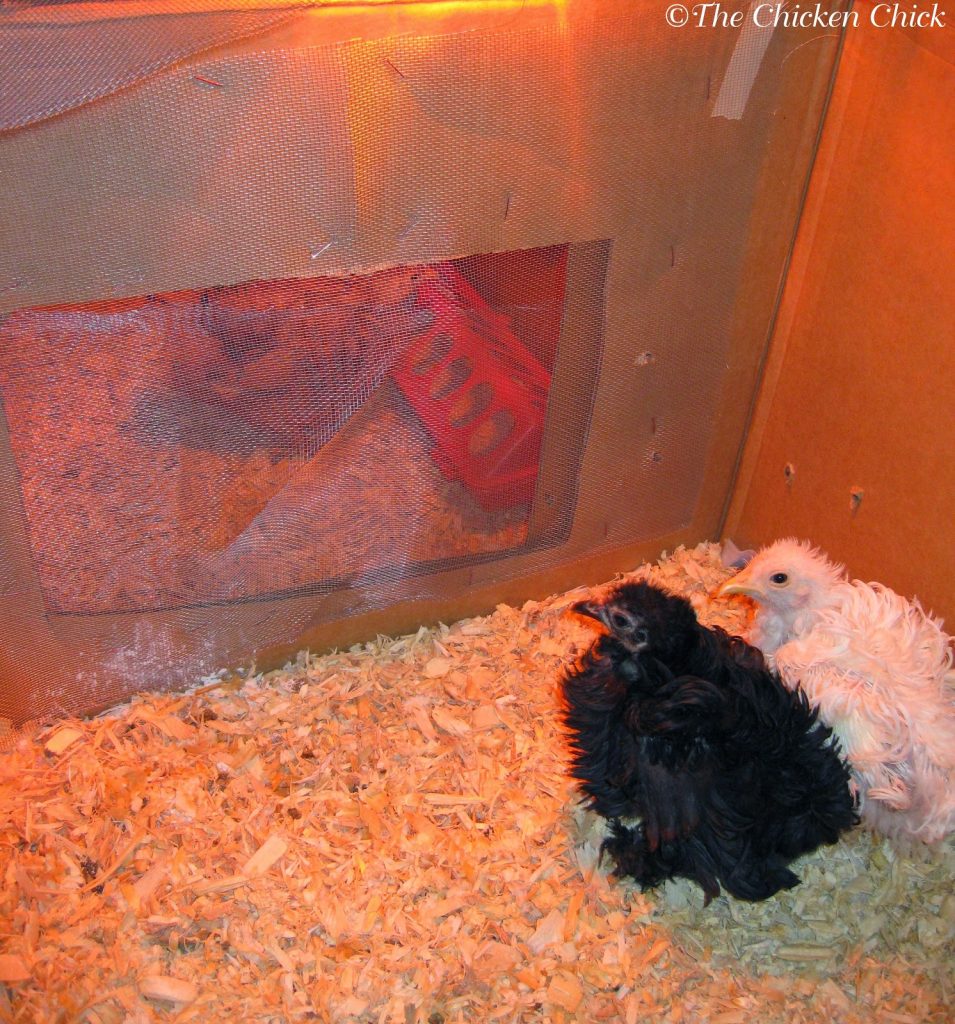
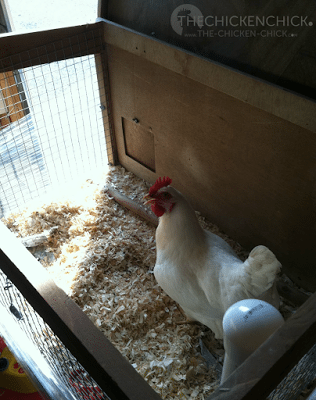
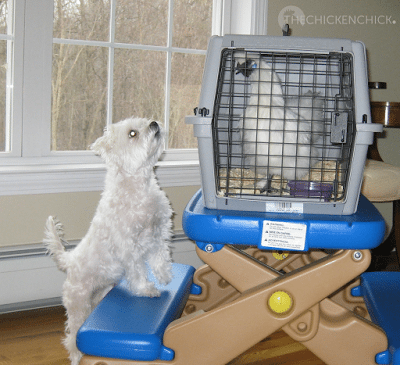
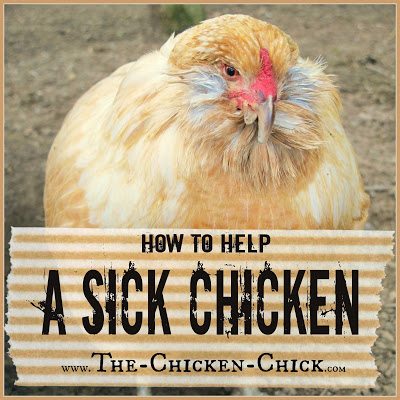

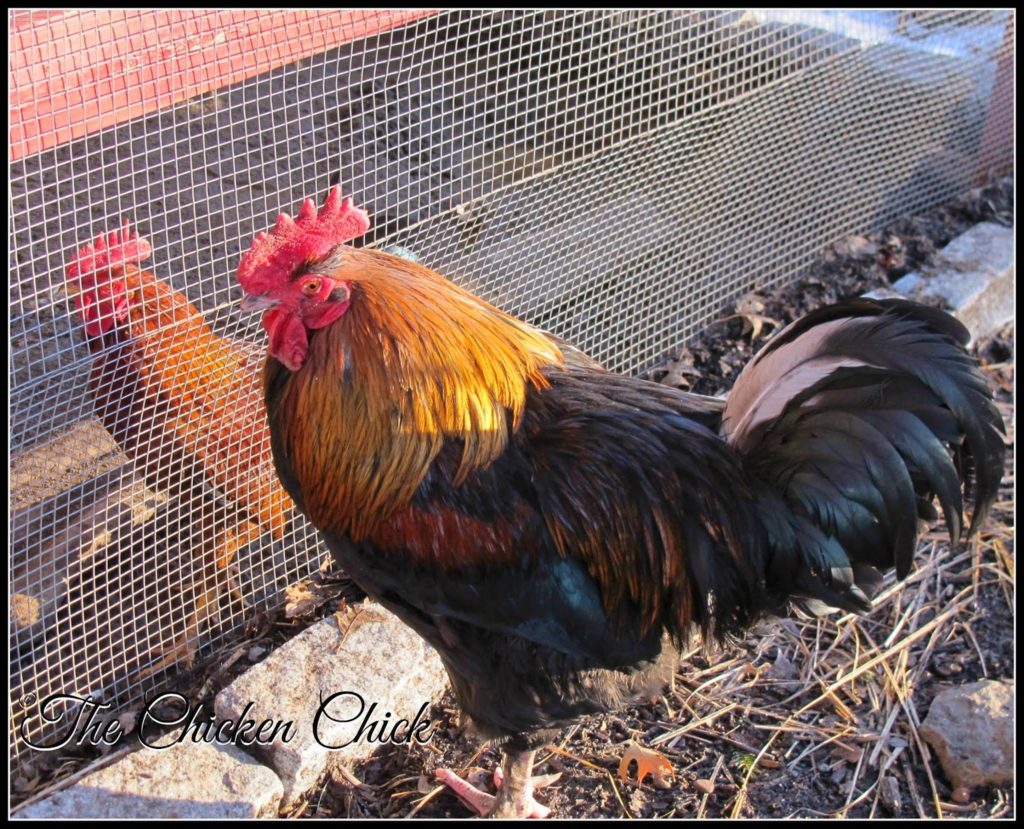






















THANK YOU FOR ALL THE GREAT INFO!! THIS GIVE AWAY IS SOMETHING I COULD REALLY USE HER WITH CHICKENS GEESE DUCKS GOATS HORSES,MOST WERE RESCUE OR THEY WERE GIVEN TO US!! WE HAVE SOME OF THESE THINGS BUT A NEW KIT WOULD BE AWESOME!!! THANKS FOR THE CHANCE!!!
Please enter me to win suscribed already thamks I love vetricyn its a amazing product
just wanted to say : chicken house is still in progress.. going to get the ply wood for floors today and the wood for the outside walls .. trusses are made for the roof.. hubby is being a slow poke at it .. he wants it to be perfect.. :)
I have some of the items from just having it around my house..did not relize this could go on with chickens.. had all my babies all outside today in a small fenced off area.. with there water in it plus feed .. I put a sheet over top of the fencing with cloth pens.. to keep the sun off of them.. it was in the mid 70's today..let them stay out for half the day .. then back to the cool pole barn.. which stays at least 20 degrees cooler then the outside. they played around a bit then went… Read more »
love this blog! smart to have a chicken med kit!